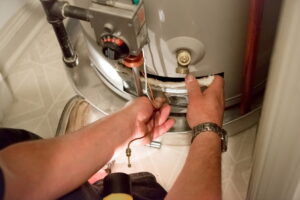If you have a boiler, you know that they are excellent heating systems. Not only do they heat effectively, but they also work efficiently to save you on monthly energy costs. But when is it time to replace your existing boiler with a newer model?
You can keep reading to learn more about the average expected boiler lifespan, as well as some signs that can indicate your boiler is reaching the point that it needs to be replaced. And then give our team a call when you need to schedule boiler services in Edison, NJ.
Average Boiler Lifespan
The average expected lifespan of a boiler is around 20 years. Getting closer to that 20-year mark makes it more and more likely that your boiler will need to be replaced in the near future. With proper care, boilers can enjoy a long lifespan. In fact, they have a longer average lifespan than other types of whole-house heaters.
Keep in mind that if you do not care for your boiler the way you’re supposed to, it may shorten the lifespan. For example, if you hear unusual noises coming from your boiler and ignore them instead of scheduling a service appointment, a problem could worsen to the point that your boiler breaks down. While many boiler problems are fixable, others can cause irreversible damage.
It’s equally important to schedule professional maintenance for your boiler, even when you think that everything is fine and there are no issues. Sometimes boiler problems can be quiet, and you don’t realize that anything is wrong until it’s too late.
Professional service appointments annually are an opportunity for our team to inspect your boiler and identify any problems that are not obvious yet. When we can circumvent these problems, we can prevent larger repair needs later on.
How to Extend a Boiler’s Lifespan
If you have a boiler and you want to make sure that it lasts for its entire 20-year expected lifespan, we have some care tips to help. One of the best things you can do for your boiler is pay attention to how it operates and call us for service if you suspect that anything is going wrong. You can also check various things around your boiler on a monthly basis to ensure that it is operating the way it should.
For example, you can check to make sure that your boiler has proper ventilation with no blockages preventing airflow from moving freely. You can also check the water pressure to make sure that it is within the appropriate range. Pressure that is too low can impact how effectively your boiler works. Pressure that is too high is dangerous for your home and family.
You should also bleed the radiators periodically. Air can build up and cause problems inside the system. When you bleed the radiators, you allow some of that air to escape, so that pressure levels remain within the accepted range.
Contact Scaran today to schedule an appointment with our professionals for residential boiler service. Our team is ready to help!









